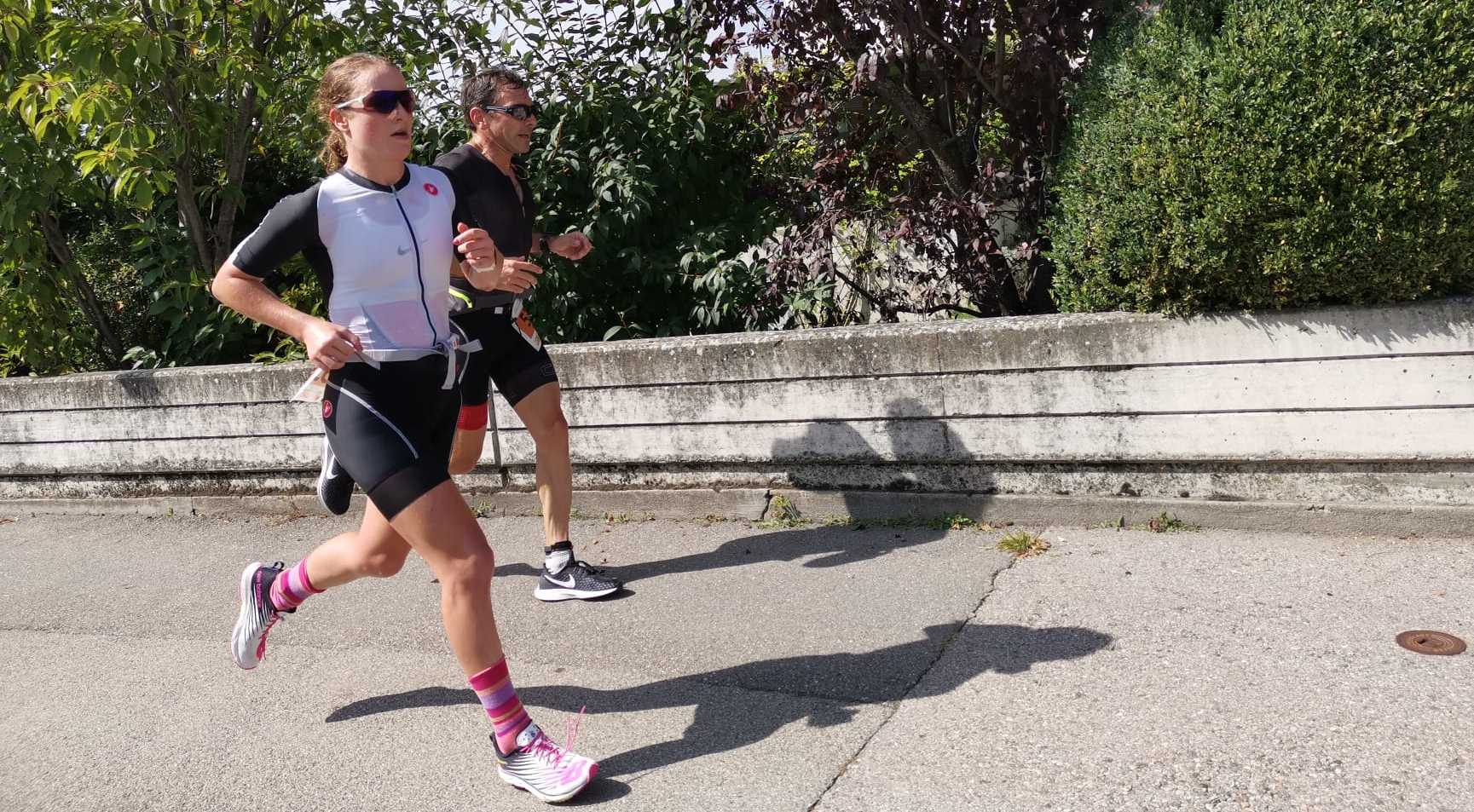Ironwoman Sophie Herzog made it!
On 7 September, Sophie Herzog, doctoral student in the group of Daniel Müller, participated in the prestigious 2019 Ironman World Championship in Nice, France. The race included a 1.9km swimming race, a 90km bike course and a 21km run. She finished the race after 5 hours 24 minutes – on a rented bike!

Congratulations, Sophie! You must be truly made from iron...! This great achievement must require not only continuous physical but mental preparations. How do you manage to survive and complete the world's toughest triathlons?
Thanks, but it doesn’t feel like I’ve achieved much right now. As my bike broke down two days before the race I had to race on a rented (and too large) bike, which caused me a lot of struggles with my back and the power transformation. However, sometimes it is not about winning a medal but about not giving up and I am glad I found the spirit to finish the race and show my competitors all my respect – even though it was not my day.
Of course, a lot of training goes into these competitions but in the end, you have to be lucky too. I try to talk positively to myself during the race and think about those people who would love to do what I am able to do (and who for some reason can’t do it). I also try to stay in the moment and appreciate my passion for this sport.
You are in the midst of your doctoral research project at D-BSSE. How do you combine both, a scientific career and your passion for sports contests?
I have to say that without my supervisor Daniel, none of my achievements in sports would be possible. Already when I was a soccer player, he was super supportive and I feel extremely grateful that he is giving me the opportunity to do both at the same time. Besides Daniel’s, my family's and boyfriend’s support, I think all that’s needed is passion and discipline (early mornings!).
How does your supervisor support you and does ETH in general provide sufficient support for professional athletes?
He is very understandable and allows me to be flexible with my training times, which is crucial. I think as an athlete working at the ETH, we are dependent on our supervisor’s goodwill, as there are no professional structures for sports (teams) like for example in the USA. It would be cool though to represent ETH more ‘officially’ in the sports world.
The ETH rector Sarah Springman is a great athlete. Have you ever met her at an international triathlon?
No, I think she was an active and very successful triathlete before I entered the sport. It is really cool to have her as sort of a role model. I would love to see more women who are active in science and sports and I believe we could be even stronger if we empower each other.
Having participated in 6 half-ironman competitions already, what is your next big goal? And: where will you be and what will you do in 10 years’ time?
To be honest, I have no idea what competitions I will do next year. One day I will for sure try to do a long distance race but not next year. I like challenging courses, not the dead flat ones. So, I will be looking for special courses or special places. I love mountain runs!
In 10 years’ time… no idea. So far, every plan I had eventually took me into a completely different direction. I would like to be somehow connected to sport and science, maybe sport science, or helping young people achieve their dreams or help them structure a busy life. Hopefully I will be having a family as well and will still be active in one way or the other.
Sophie Herzog is a second-year doctoral student in the Biophysics group headed by Daniel Müller investigating cell mass regulations in different cell types and states using the picobalance, which was developed by David Martínez and Gotthold Fläschner. Understanding cell mass regulation and connecting this knowledge to the lab's research on cell adhesion properties is important in areas including physiology, cancer research, stem-cell differentiation and drug discovery.